City Government
Combining Cities’ Teamwork Community and Development Solutions
Published
2 years agoon
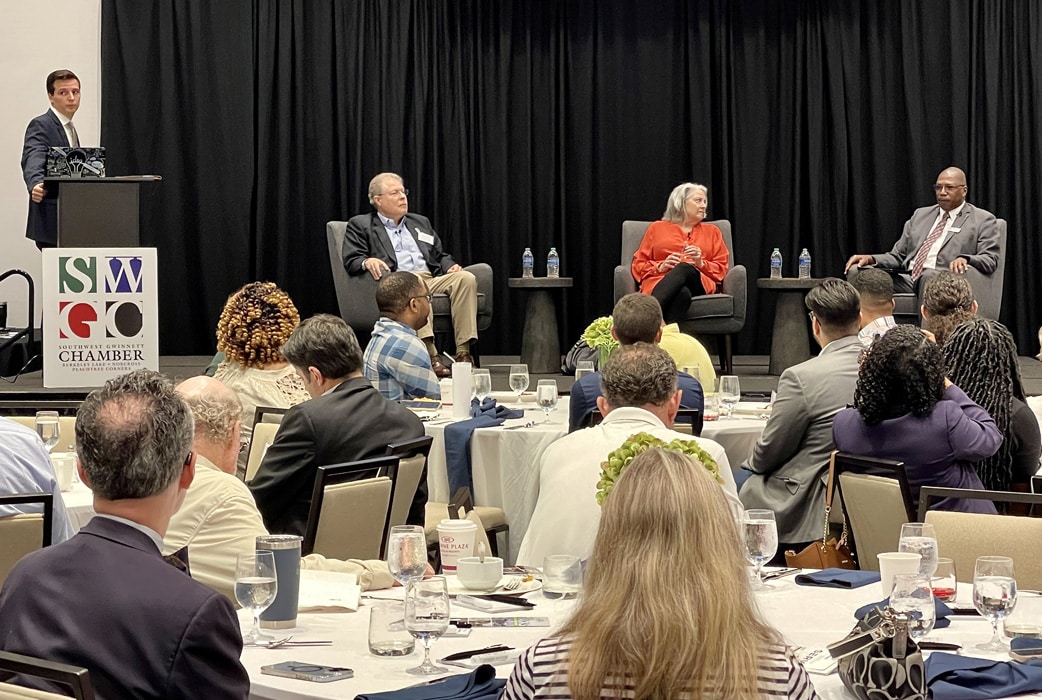
Mayors of Berkeley Lake, Peachtree Corners and Norcross agree that pooling each city’s strengths will mean economic success for the area.
With mixed-used developments popping up all over metro Atlanta, Gwinnett County may be poised to catch up to or surpass Fulton County as the most populous county in the state. According to the U.S. Census Bureau, Fulton County’s population is at 1.05 million and Gwinnett is at 926,000 at the last 10-year count.
Currently, more than 500 international businesses have a footprint in the county with booming industries such as information technology, health sciences, professional services and supply chain management. With a diversity index of 80.9% (meaning that if two people are picked at random in Gwinnett County, there’s an 80.9% chance that the two would be of a different race or ethnicity), it is also the most diverse county in the southeast. Add that to a labor force of over 1.8 million individuals and along with a wide range of incentives and resources, Gwinnett is expected to continue growing and attracting companies of all sizes.
These facts are clearly evident in the southwest corner of the county. To add perspective to where the area is headed, the Southwest Gwinnett Chamber of Commerce hosted a panel discussion during its First Friday breakfast meeting on July 8 among the mayors of Berkeley Lake, Peachtree Corners and Norcross to enlighten residents, businesses and stakeholders of the potential future growth.
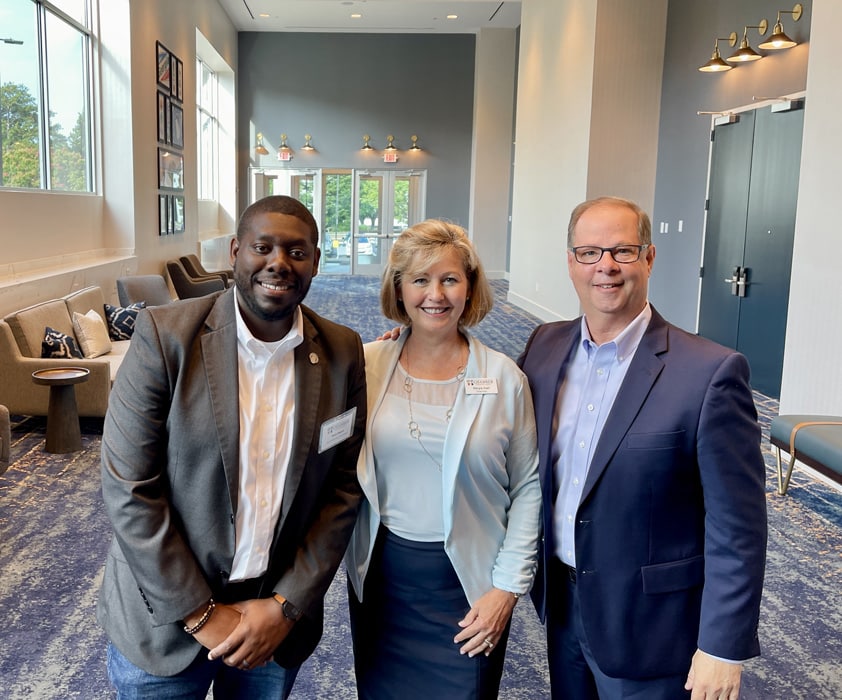
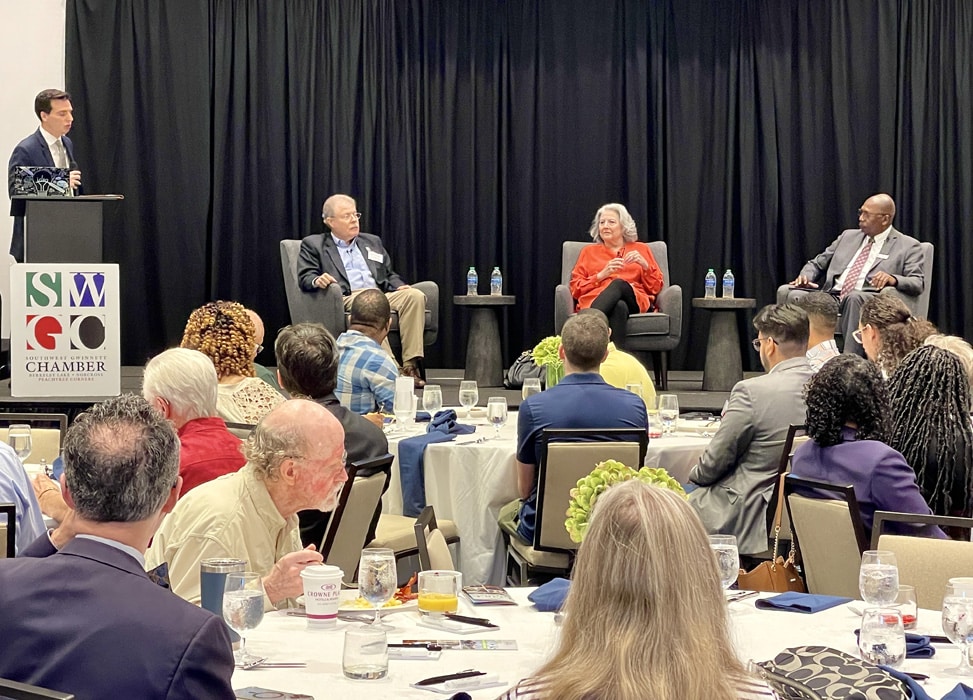
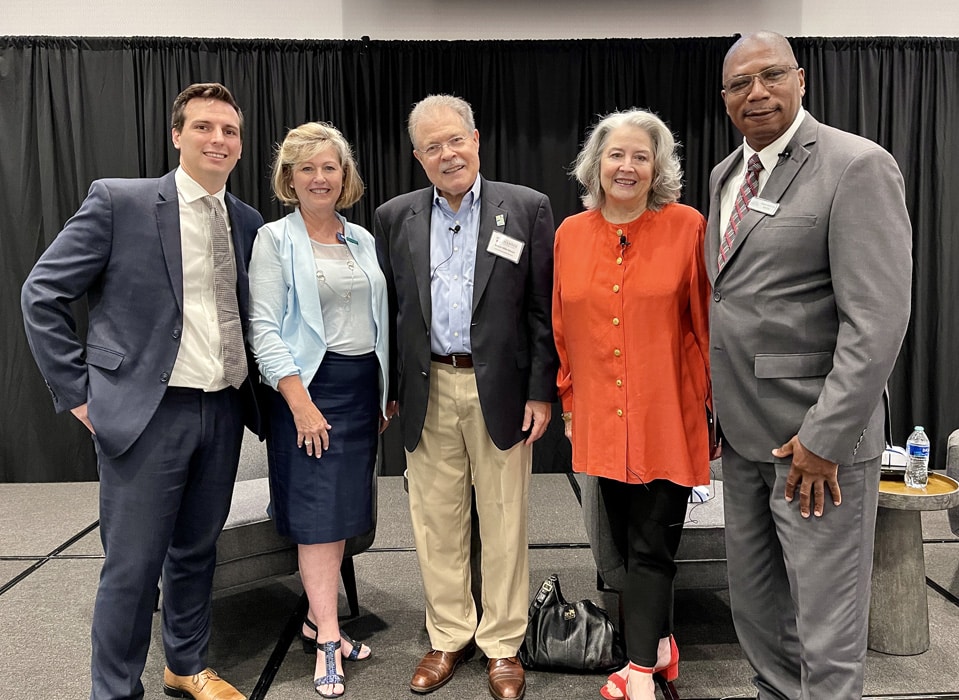
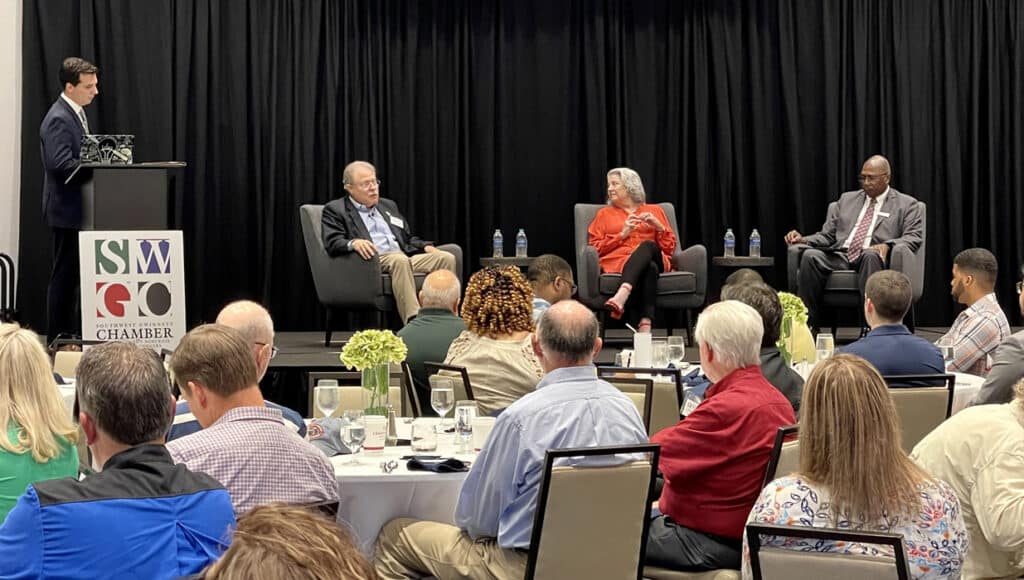
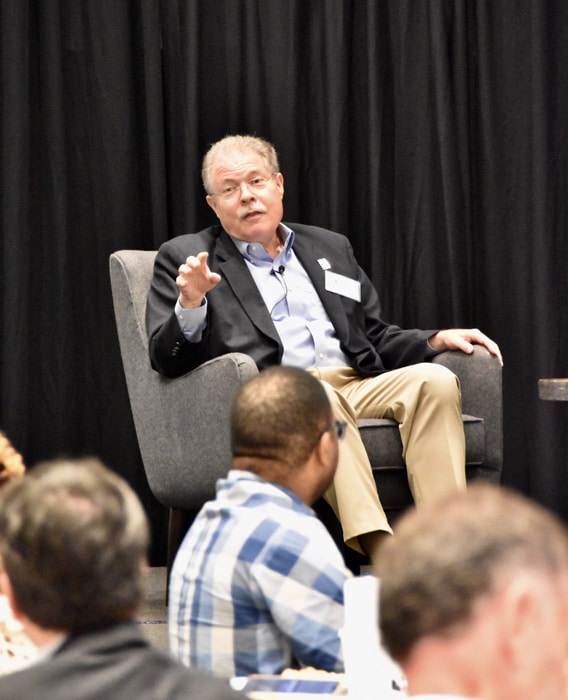
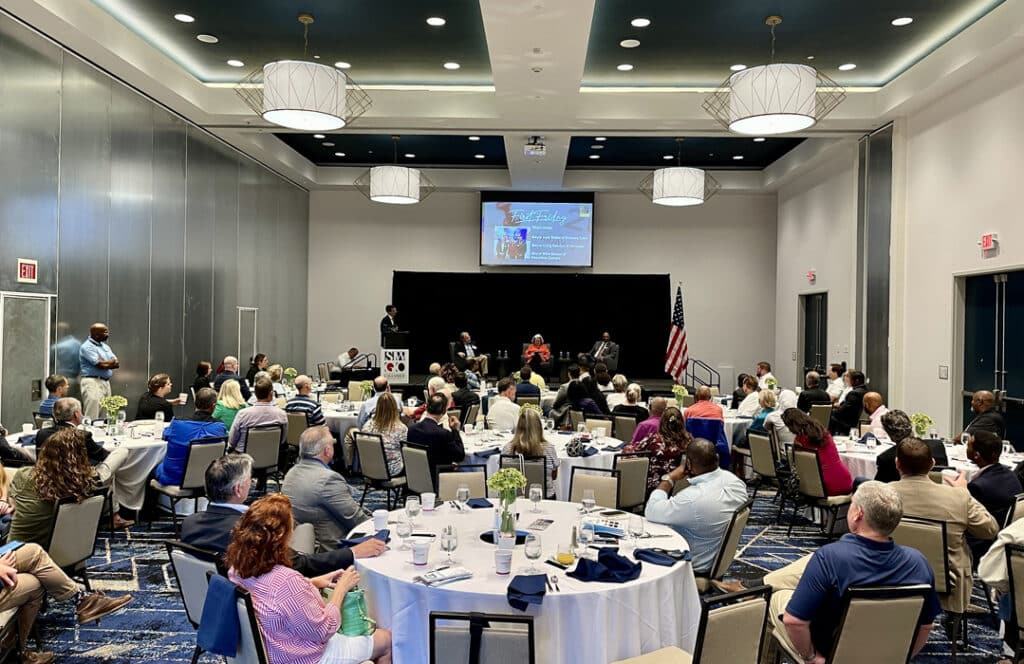
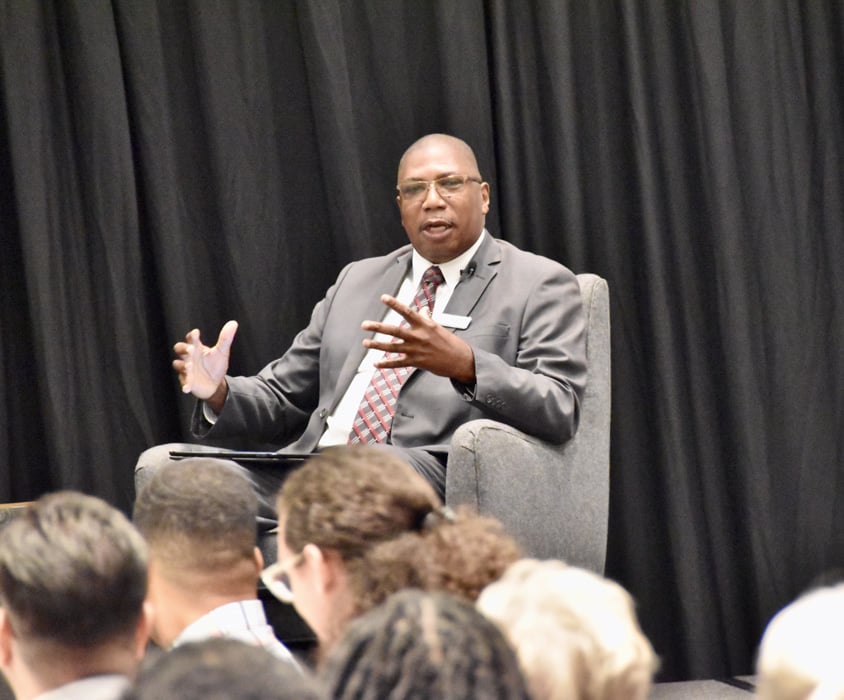
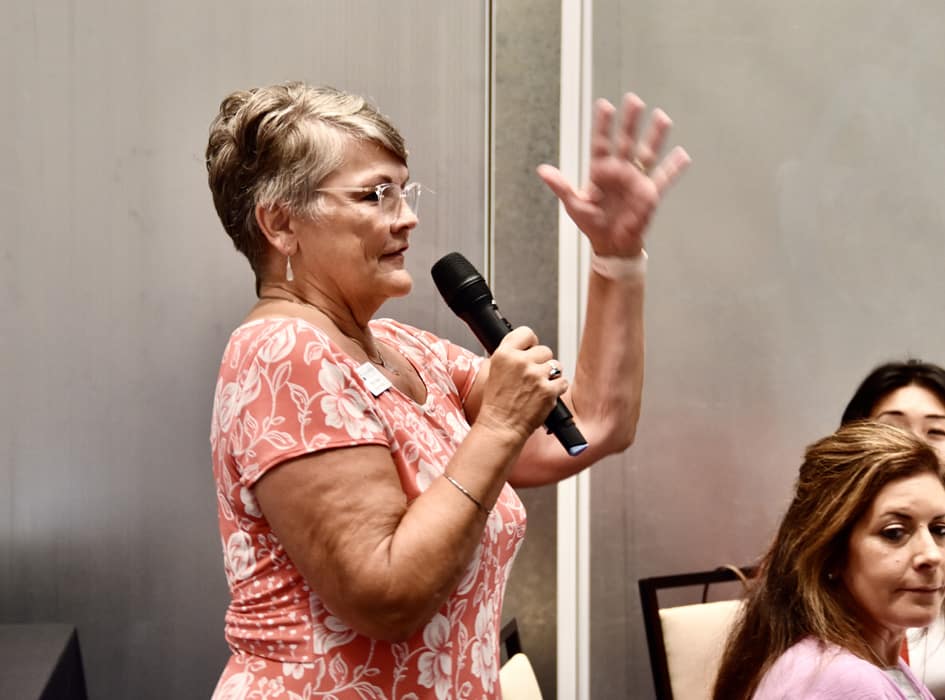
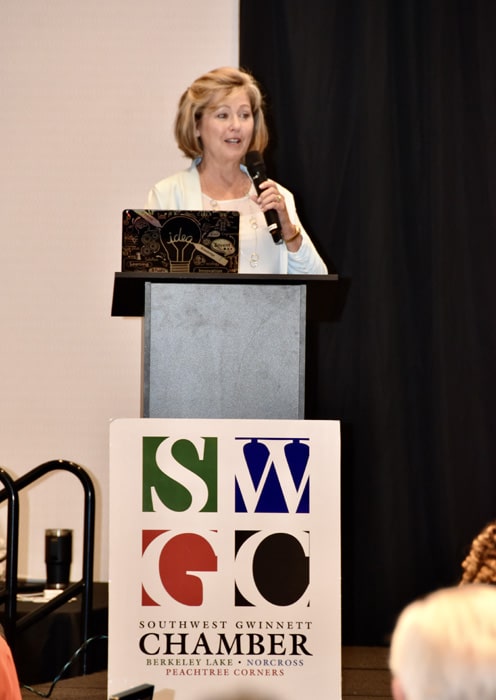
More growth on the way
Right off the bat, Peachtree Corners Mayor Mike Mason mentioned the $500 million expansion of Intuitive Surgical’s Peachtree Corners operation. The robotic surgery systems company — the dominant player in the space — has had a presence in Georgia for a decade. The plan is to expand the Peachtree Corners campus to 750,000 square feet of manufacturing and engineering operations, training facilities for surgeons and hospital care teams and administrative offices.
The expansion will take place in phases, with completion in 2024. Intuitive Surgical plans to add 1,200 jobs on top of the 180 professionals it already has based in Peachtree Corners.
“Intuitive needs a highly educated, committed and diverse workforce; quality infrastructure; and the right geography to meet the rising demand for minimally invasive surgical technologies,” Intuitive CEO Gary Guthart said when the company first announced the project. “We’ve found that here, and we’re excited to continue to grow in the state.”
This is an incredible boon to an area that is already bustling with technology advancements.
“You have people picking up and moving here with an average salary of $130,000,” said Mason, adding that about 400 jobs will be filled locally, but another 1,000 or so will be moving into the area.
He pointed out that currently, there aren’t 1,000 available housing units in Peachtree Corners even if the wider net of Berkeley Lake and Norcross were cast.
“There’s not even 500,” said Mason. “It’s going to make a tremendous impact on this whole area. That’s exciting. And it’s the thing that the three of us have said many, many times — a rising tide lifts all boats.”
Berkeley Lake looks for housing solutions
All the mayors agreed that housing is an issue across the board. However, it’s not just about the influx of high-income residents that’s cause for concern. The dearth of affordable housing across the country has governments, real estate professionals and social services agencies seeking solutions.
That led Berkeley Lake Mayor Lois Salter to mention her conundrum. “I would have to say honestly, that as the fourth most expensive place in the state to buy a house after Sea Island, Milton and Druid Hills, …I don’t have anything to write about in that regard,” said Salter.
According to recent data compiled by Zillow.com, the average home price in Berkeley Lake is about $750,000 which is a 30% increase in the past year and a 63% increase in the past five years.
“We have looked at the only way …to make some affordable housing is what’s called accessory housing,” she added.
Also known as accessory dwelling units (ADU), they are smaller, independent residential dwelling units located on the same lots as stand-alone (i.e., detached) single-family homes, according to the American Planning Association. ADUs go by many different names throughout the U.S., including accessory apartments, secondary suites and granny flats. ADUs can be converted portions of existing homes (i.e., internal ADUs), additions to new or existing homes (i.e., attached ADUs), or new stand-alone accessory structures or converted portions of existing stand-alone accessory structures (i.e., garages, outbuildings).
“That has worked in places like Buckhead and historic Savannah,” said Salter. “They have carriage houses and garage apartments and things where single-family homes have been made.”
The concept is slowly gaining support.
“We made a potential ordinance that required anyone who wanted to do that …to get a special use permit, and to control the people who were living there so that it didn’t look like a duplex,” said Salter.
Initial concerns were about on-street parking and diminished property values.
“People who are aging in place could have an additional income from that. And then they can have people live near them with them with their own privacy, but also accessible to each other in what could be a very positive way,” said Salter. “We’re not there yet in Berkeley Lake. That’s the only thing that I can think of that Berkeley Lake can do that will create affordable housing.”
Affordable housing a priority in Norcross
Norcross Mayor Craig Newton had a different perspective.
“Housing is important for a couple of reasons,” he said. “In the last three months of 2021, institutional investors bought up 20% of all homes that were for sale. This is boxing residents out of homeownership. Now research shows that the shortage of affordable housing costs the American economy $2 trillion a year.”
Newton went on to explain that this problem is affecting a family’s ability for self-sufficiency and wealth building. When housing costs exceed 30% of one’s income, that can lead to a downward spiral.
“Addressing this, the city of Norcross made housing a priority,” Newton said.
Norcross is part of the Georgia Initiative for Community Housing, a three-year program that is jointly administered by the Georgia Department of Community Affairs and the University of Georgia. The program aims to help communities around the state meet their housing and neighborhood revitalization needs.
“We’ve partnered with …Norcross Housing Authority, created a new affordable housing development to transform a 50-year-old development into a modern, affordable community with over 150 units. We’ve also established a revised Norcross Development Authority and empowered them to address affordability along with economic development. And during the process, of creating a separate affordability product that will yield close to another 150 units.”
Peachtree Corners balances development and livability
With Berkeley Lake and Norcross on nearly opposite ends of the spectrum, Peachtree Corners is somewhere in the middle.
“Housing is not the business of the city,” Mason pointed out.
But Peachtree Corners has become a much sought-after area for developers. Mason cited the revitalization of Town Center as an indicator of its cachet. He pointed out that retail in the post-COVID world has changed and Town Center’s new owner, North American Properties has a proven track record of success in this modern age.
“We’re looking forward to what they have done,” he said. “They have put a package together and given it to our community development folks that’s very exciting.”
But not every developer makes the cut.
“Developers, they come in and say, ‘We’ve got a great idea, we just want to tear all this down and put in an apartment complex or mixed-use development,’” Mason said. “We’ve turned down a number of apartment complexes because people want to just put them everywhere.”
Mason added that Peachtree Corners is working to be a good steward of its responsibilities and look at what’s best for everyone — the newcomers as well as those who’ve been around since day one.
Ten years ago, when the city was founded, it was mostly filled with single-family houses. “And we were told when we became a city that …Tech Park was falling apart. People are leaving, the office is old, and you need to do something about it,” said Mason. “So I got two wise men and women to do a survey and they told us …the young people who will work in these high tech companies want to live in Midtown where it’s cool — where they can live, work and play.”
That’s where a lot of the new development is headed.
Mason mentioned the new Waterside development, too. “Waterside sticks out as ‘old age restricted,’ although there’s an area that is not age restricted but is filling up with old folks. You need a mix of that as well,” said Mason. “We don’t have a housing plan for the city’; however, we do monitor what we’ve got and what we need.”
With each city bringing a particular set of assets to the table, all three mayors agreed that achieving controlled growth relies on teamwork.
Related
Arlinda Smith Broady is part of the Boomerang Generation of Blacks that moved back to the South after their ancestors moved North. With approximately three decades of journalism experience (she doesn't look it), she's worked in tiny, minority-based newsrooms to major metropolitans. At every endeavor she brings professionalism, passion, pluck, and the desire to spread the news to the people.

City Government
Southwest Gwinnett Mayors Share Visions for the Future
Published
4 days agoon
July 22, 2024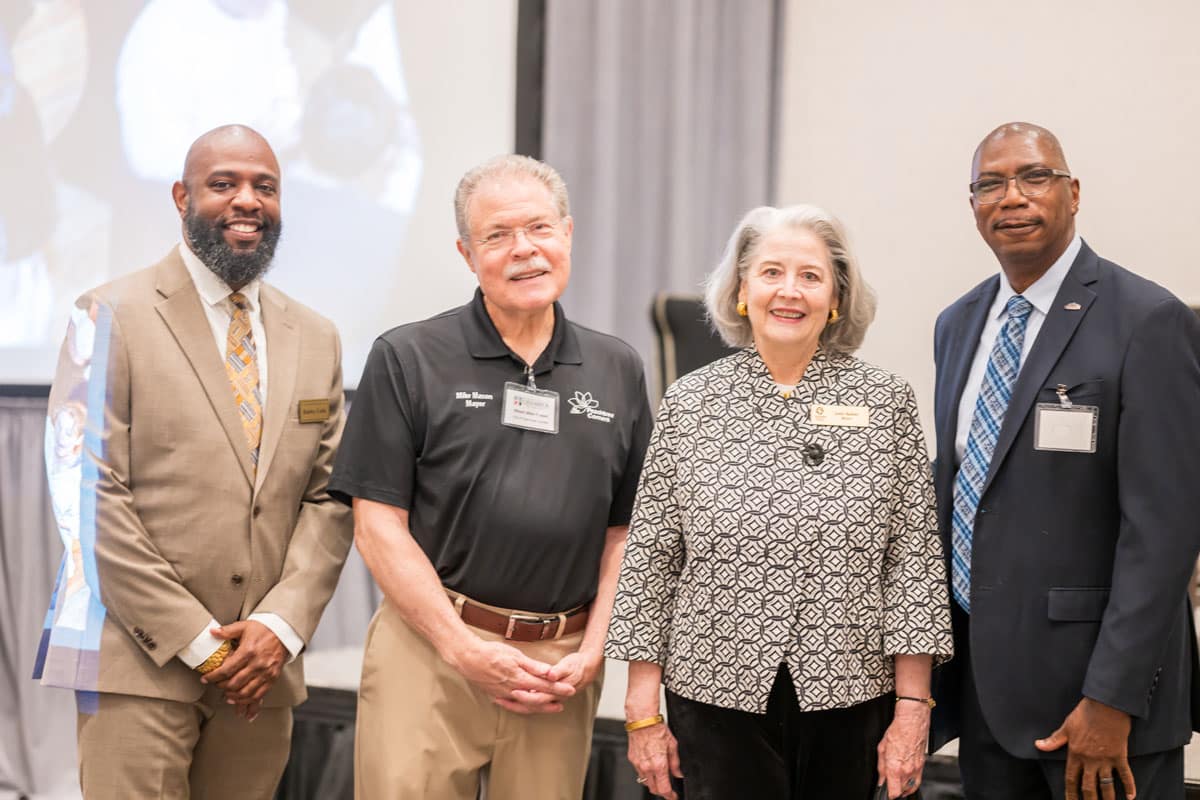
In what has now become tradition, the Southwest Gwinnett Chamber of Commerce hosted mayors from Berkeley Lake, Norcross and Peachtree Corners at a panel discussion on July 12 at the Hilton Atlanta Northeast.
The conversation centered around strategies for revitalizing and expanding metro Atlanta cities, with a focus on redevelopment, zoning ordinance reform, pedestrian and bicycle safety and investing in local schools and affordable housing initiatives.
Zoning changes
“We are beginning a really big project in our city. We have had ordinances that we’ve been working on ever since the city was incorporated in the 1950s,” said Berkeley Lake Mayor Lois Salter.
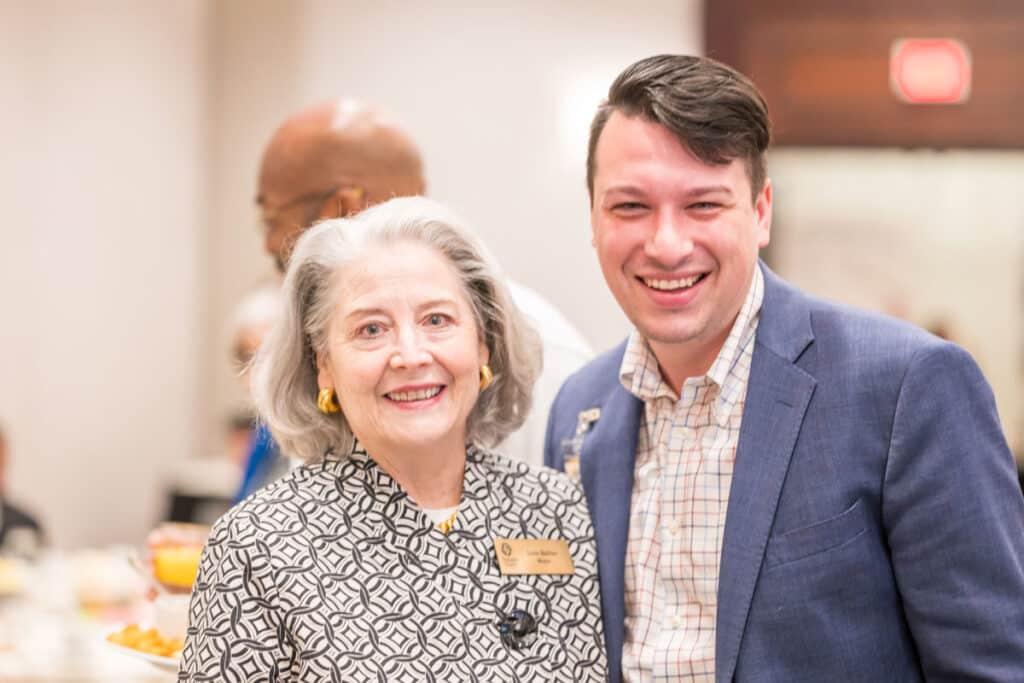
“We feel that we need to overhaul the whole zoning ordinance system and hire a consultant to come and elicit understanding and opinions from our citizens. We want them to be a part of that. We have some folks that resist any kind of regulation. They just want us to regulate their neighbors,” she added.
Norcross Mayor Craig Newton agreed that evolving needs are an important reason to change the zoning, and planning for what lies ahead is paramount. He pointed out that all Georgia cities must implement a comprehensive plan to maintain their qualified local government certifications and remain eligible for selected state funding.
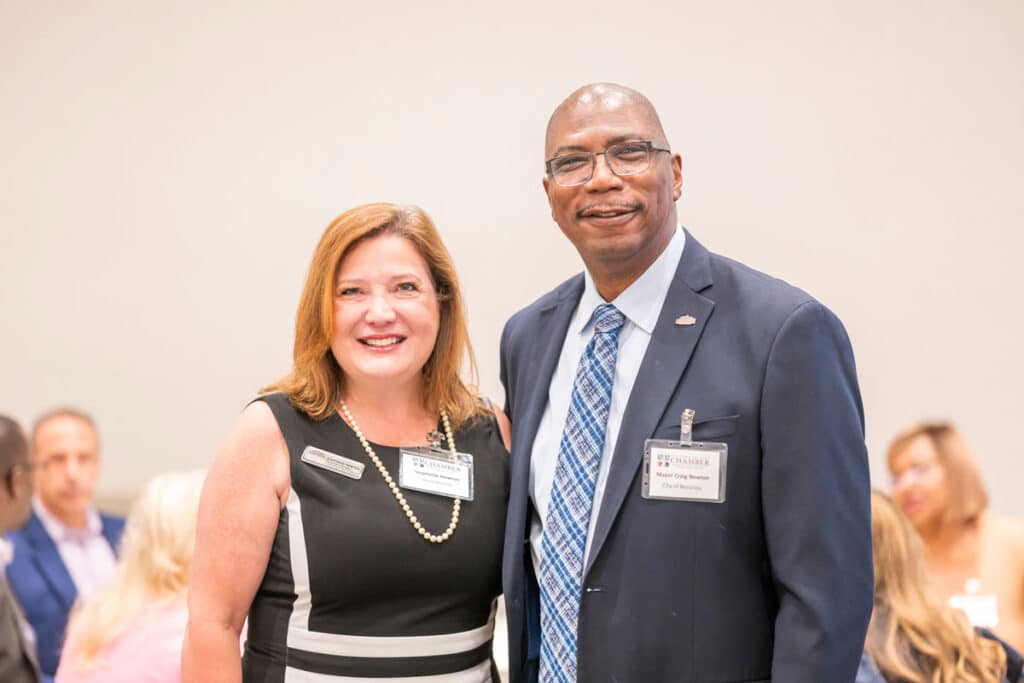
Land development
“We intend to focus on improving pedestrian bicycle safety downtown and establish a sidewalk activity improvement,” he said. “We’re also looking at approving parking in our town center and constructing the Norcross Greenway, which will bring a much-welcomed park, green space and a trail,” he added.
The county announced earlier this year that the project involves redeveloping the existing property into a park that will span almost two acres. It will offer various community spaces, including a multi-use trail, playground, covered picnic area, restroom building and a 41-space parking lot.
In addition to its amenities, a 12-foot-wide concrete trail segment will wind through the park and utility corridor, connecting Singleton Road to Dickens Road.
The trail is part of the 2018 Gwinnett Trails Countywide Trails Master Plan‘s Norcross to Lilburn Trail with an internal loop trail connecting to the neighborhood.
Commercial use
Peachtree Corners has had several “community-friendly” projects come online in the past year, but the effects of the pandemic continue to linger.
“When you think about the future, you’re thinking about the landmass and buildings and commerce. Probably the most significant issue facing a lot of us in the near term is modern office space,” said Peachtree Corners Mayor Mike Mason. “There’s a lot of space. The question is, are people going to come back?”
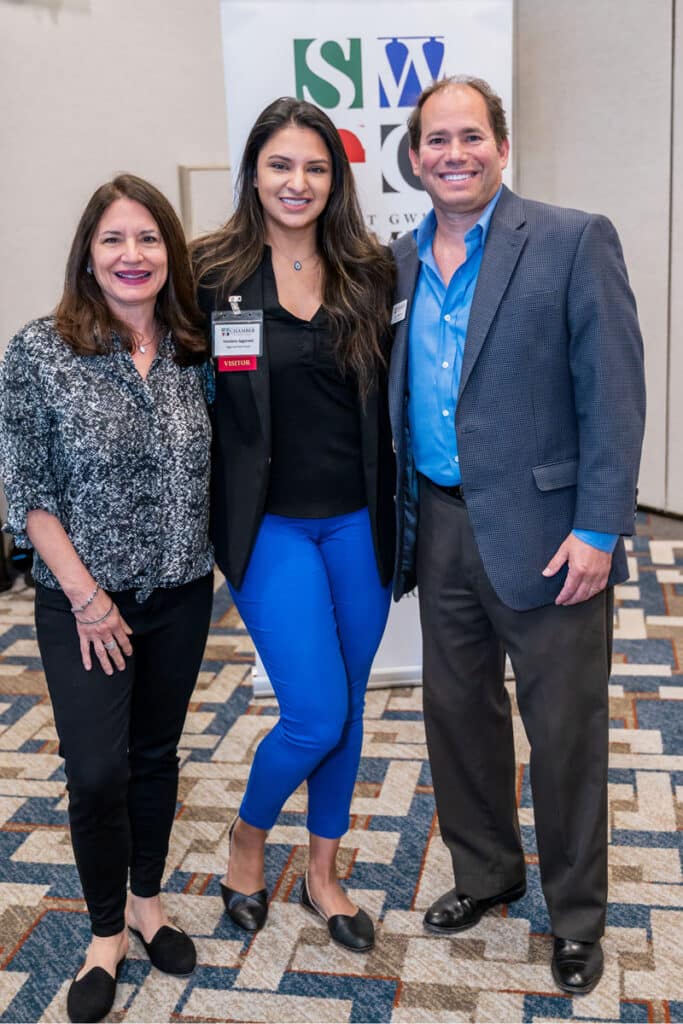

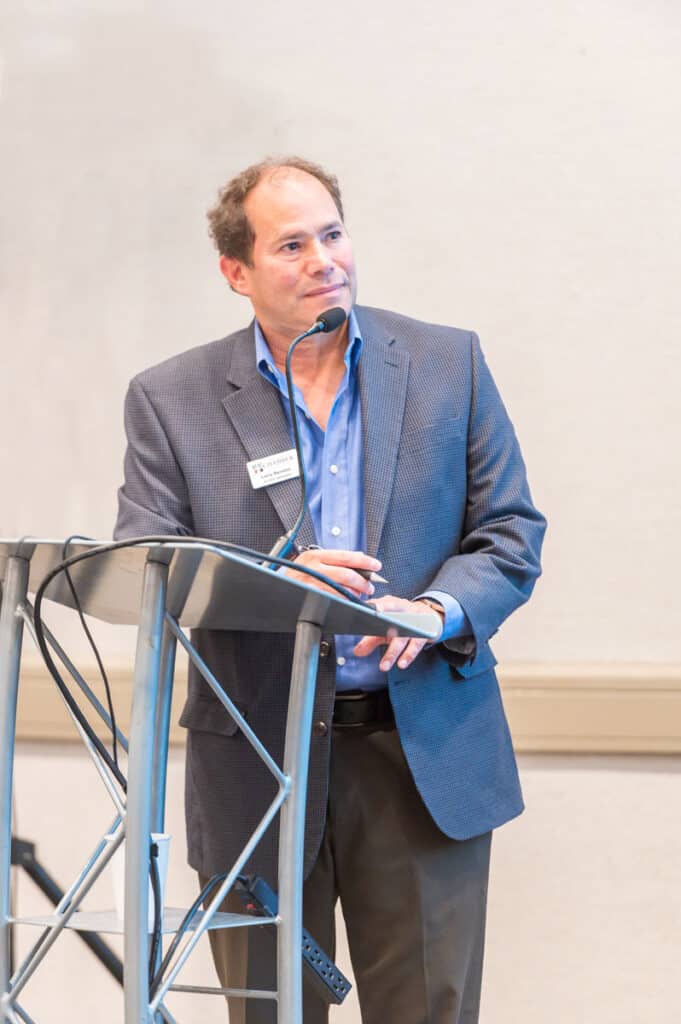
He said that the central retail area has shifted with the revitalization of The Forum and that’s making city leaders rethink city planning.
“We’re having a look at our code and things like that. But from another point of view that will drive the decision about what communities are going to look like,” he said. “For example, there are people coming into the city that say some buildings are technologically obsolete.”
Public safety
Even though Berkeley Lake is the smallest of the three cities and has the highest average home values, all the mayors agreed that public safety is a growing concern.
“Living in Norcross offers residents a dense suburban feel that’s somewhat rural compared to the city of Atlanta,” said Newton. “But some of our public safety initiatives are increasing police presence in high crime areas.”
As the only one of the three cities with a full police department, Norcross is seeking creative ways to implement effective community policing strategies to build trust and communication between law enforcement and the residents.
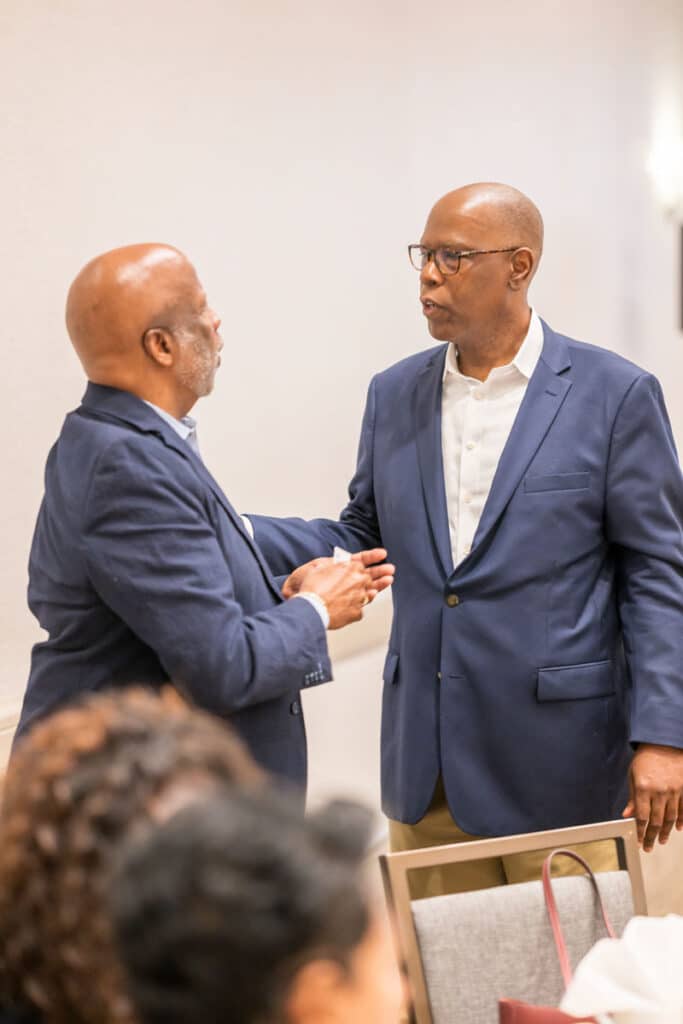
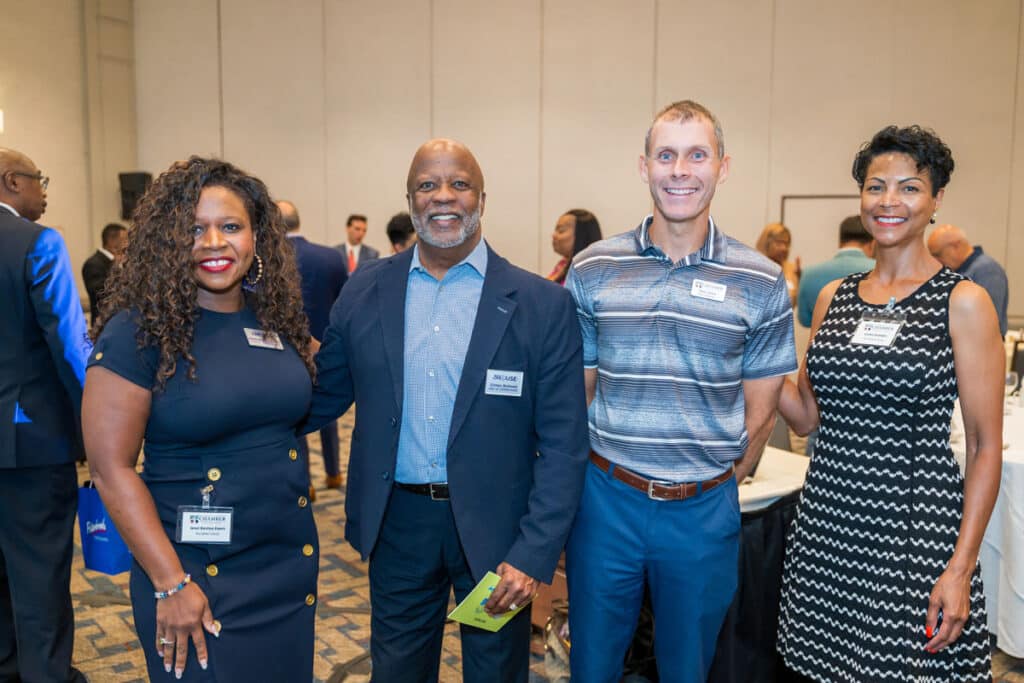
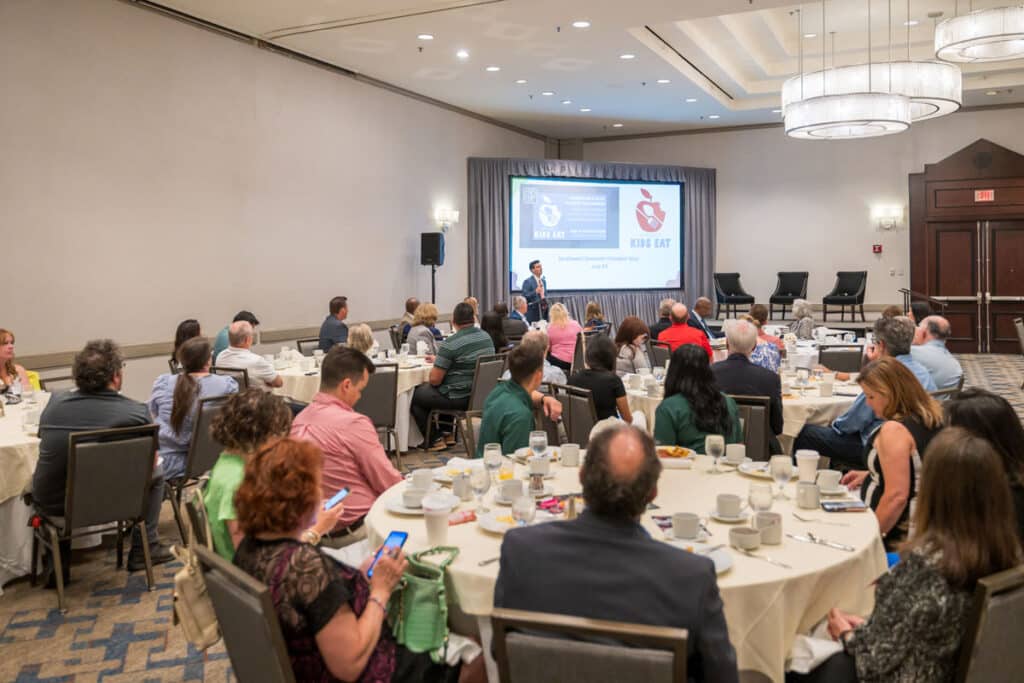
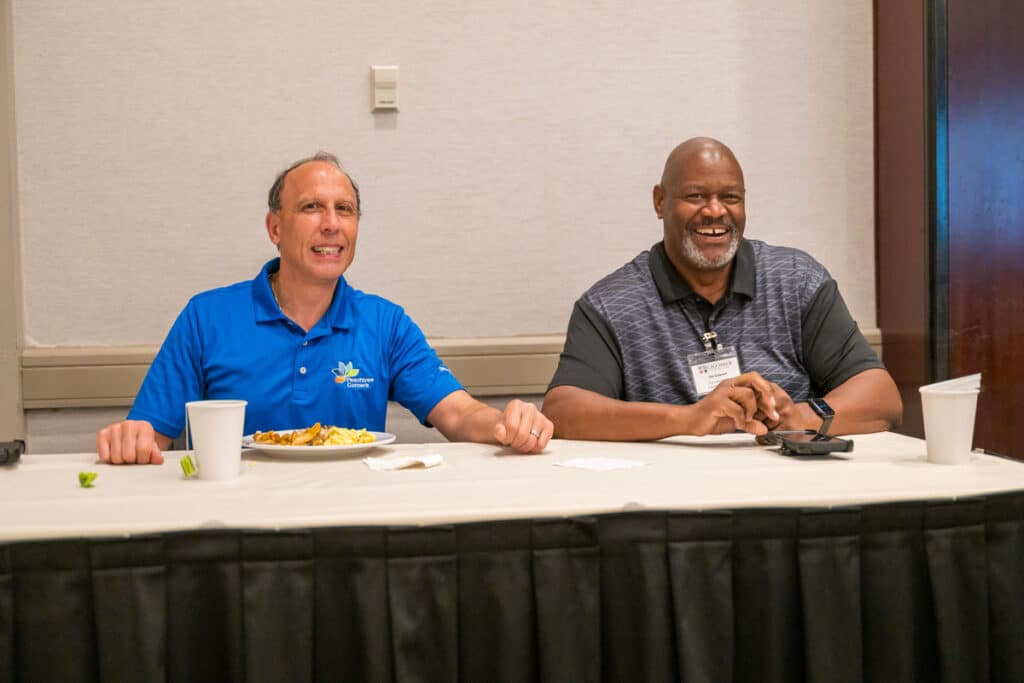
Newton mentioned programs such as Neighborhood Watch, youth outreach programs and educational initiatives along with enhancing emergency response capabilities with training for the local fire department and EMS services.
“Our response time goal is for an officer to be on-site in an emergency within 30 minutes,” he said. “But that doesn’t happen.”
Extended-stay hotels tend to attract crime, so Newton said the city has worked with owners to improve lighting in the public spaces to deter criminal activity.
“We’ve partnered with nonprofit businesses and local stakeholders to support social services employment opportunities for at-risk individuals,” he said. “By working together with various organizations and entities were able to address the complex challenge of public safety.”
Community accountability
With no police force, Berkeley Lake relies heavily on cameras and old-fashioned “knowing your neighbors,” said Salter.
“Some of our individual HOAs are buying and furnishing and paying for cameras to safeguard their neighborhoods,” she said.
Although there may be pockets of criminal behavior around the city, Salter said a police officer once described Berkeley Lake as a “black hole” of crime because there’s so little crime data.
“One of the reasons for that we feel is that historically we’ve been a very neighborly people,” she said. “There is an amazing system of community cohesiveness.”
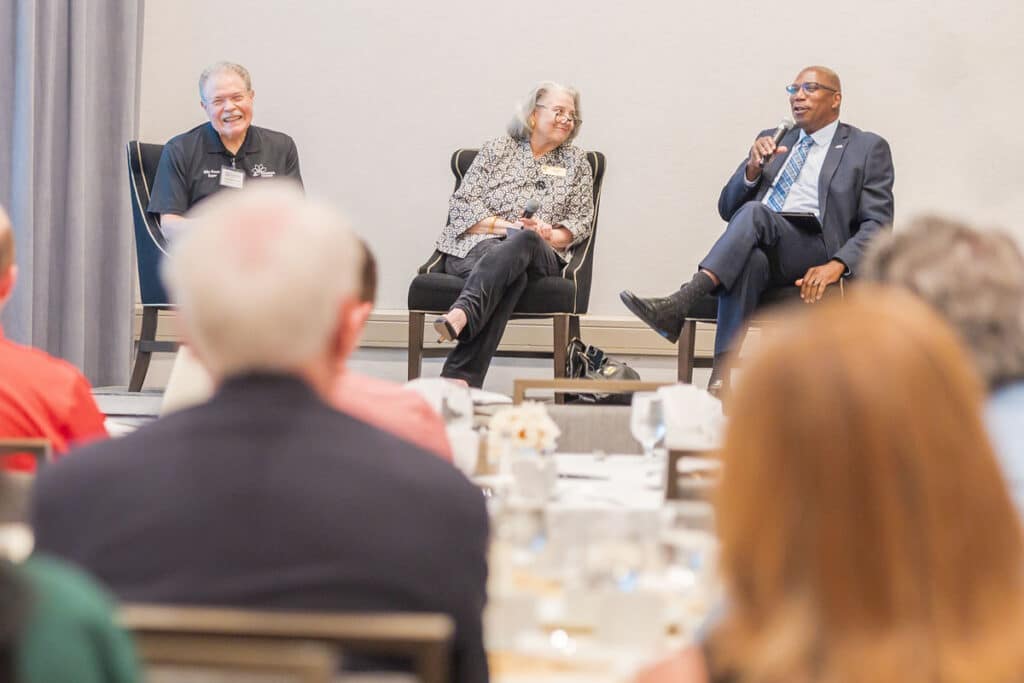
Peachtree Corners is taking its own approach.
“We’ve recently added a Marshal Service and as Lois mentioned we’re also leaning on technology,” said Mason.
The marshal department doesn’t take the place of the services provided by Gwinnett County Police, it primarily enforces city code and aids Gwinnett PD when necessary.
“We’re utilizing as much technology as we can,” said Mason.
Gwinnett PD is instructing where to locate cameras and the city keeps adding them. There have been several instances in the last year or so where coordination among agencies and the use of technology have thwarted or caught criminals.
At the end of the day, the three mayors said the cities all rely on each other. Being so close means that economic development, enhanced entertainment and other desirable amenities are boons for them all.
Related
City Government
Planning and Development is Changing in Peachtree Corners
Published
2 months agoon
June 6, 2024
From Peachtree Corners Mayor Mike Mason’s monthly column.
After the COVID-19 pandemic, the city noticed a development trend that focused on the importance of social interaction. It began seeing development applications for indoor pickleball, virtual racing, garden clubs, car clubs and other recreational uses.
When our city was established in 2012, it adopted Gwinnett County’s codes and ordinances to maintain consistency and these new social interaction-focused uses were not initially considered in the city’s current Comp Plan or zoning code.
Working from home is another market trend having a big impact on local office parks. This economic engine is driven by office parks such as Technology Park and there’s always been a priority placed on preserving office stock.
Even though the commercial office market is waning right now, that pendulum is still trying to figure out where it will settle in. Most of these new socially focused uses find the best home in an office setting.
Due to the increasing number of these applications and the evolving market trends, the city has imposed a six-month moratorium on projects in the Central Business District character area. The moratorium came into effect on May 3 and will end on November 3.
This halt will allow the city six months to pause rezoning applications, special use permits and variances applications for residential or mixed-use development. It will help the city maintain the status quo, stop new applications from coming in and allow for officials to consult with experts and delve deeper into the code and comprehensive plans.
The city plans to conduct extensive research, analysis and strategic planning during this period to help determine if any changes should be made to the comprehensive plan and zoning regulations.
For instance, it might be beneficial to designate downtown as a distinct character area separate from the central business district. Implementing new zoning regulations to transform it into an entertainment district or a unique downtown character area could be a viable option. Many cities have already adopted this type of zoning.
Office parks and businesses throughout the city provide a balance of jobs and residents that allow the city to be the second largest in the state with a zero-millage rate or no city property tax.
Therefore, as part of this process the city will research ways it can preserve, stabilize and enhance the economic engine through the activation of underutilized spaces within office parks.
This proactive approach will help maintain the job-to-resident balance that allows the zero-millage rate while positioning the city for success as the office market pendulum settles.
The most important thing this moratorium does is allow the city to consider what will work best for Peachtree Corners. Furthermore, it communicates to developers that the city requires a pause because current zoning regulations and comprehensive plan do not adequately address future goals.
Related
City Government
Peachtree Corners Welcomes New Community Development Director
Published
2 months agoon
June 2, 2024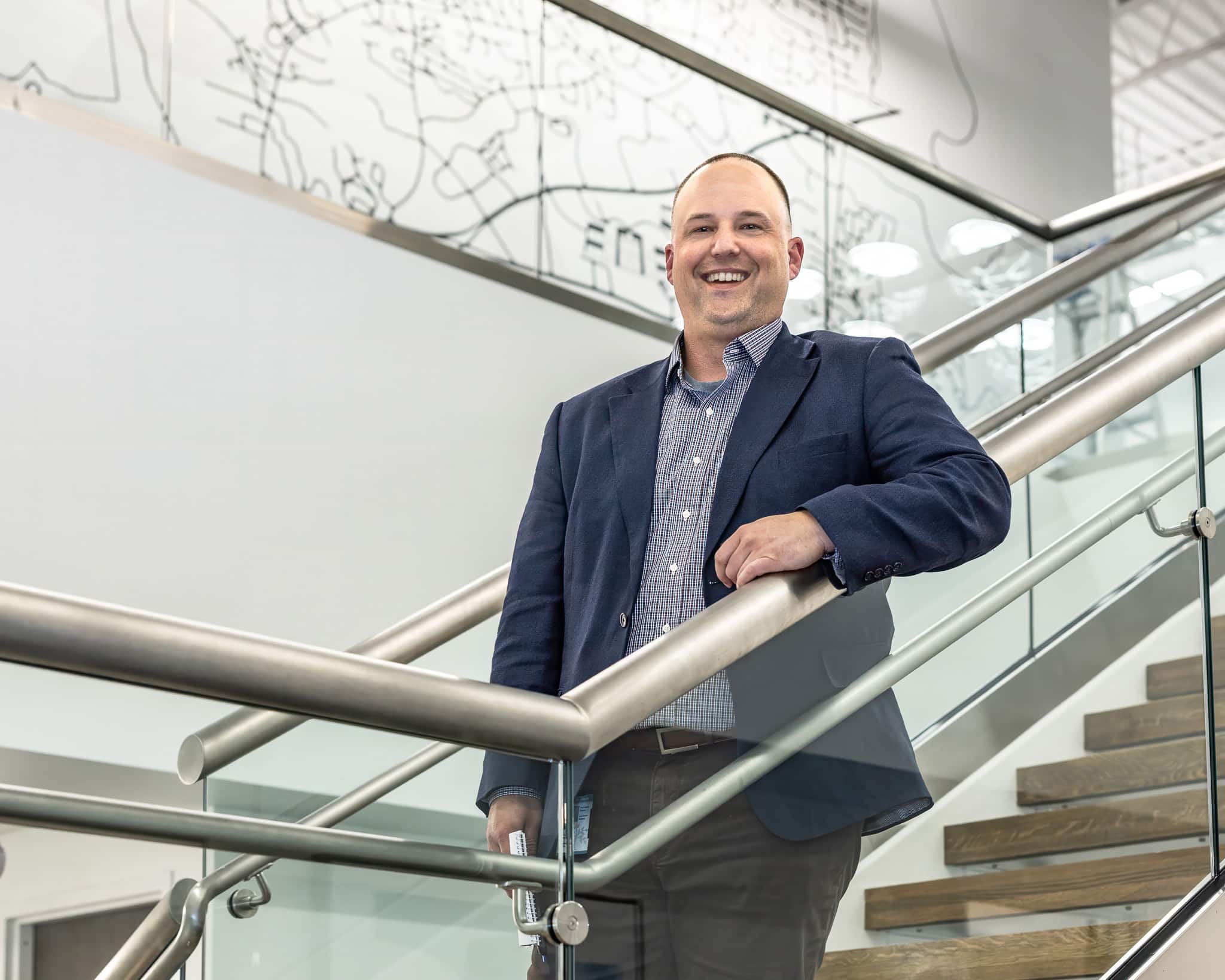
With community development director Diana Wheeler stepping down to pursue a consulting career, Peachtree Corners city leadership turned a challenge into an opportunity.
In January, Shaun Adams was hired as the assistant city attorney to oversee compliance for land use and economic development-related matters and help with legal issues.
His background in public and private sector development made him the ideal replacement.
As luck would have it, Adams moved to Georgia in 2005, selling real estate while attending law school.
“I actually started working down at the capital a lot, lobbying on various policies right out of law school,” he said. “I was the legal counsel for the Senate Judiciary, and that exposed me to ACCG, which is the State County Association, which represents all staff and elected officials for counties across the state.”
With the motto, Advancing Georgia’s Counties, ACCG helps with the policy aspect of things like training and education.
“While I was a lobbyist for them, I focused on economic development, infrastructure-related issues and whatever policies went into place,” Adams said. “We also went around the state and trained our commissioners and their staff on some of those policies and put their new processes in place.”
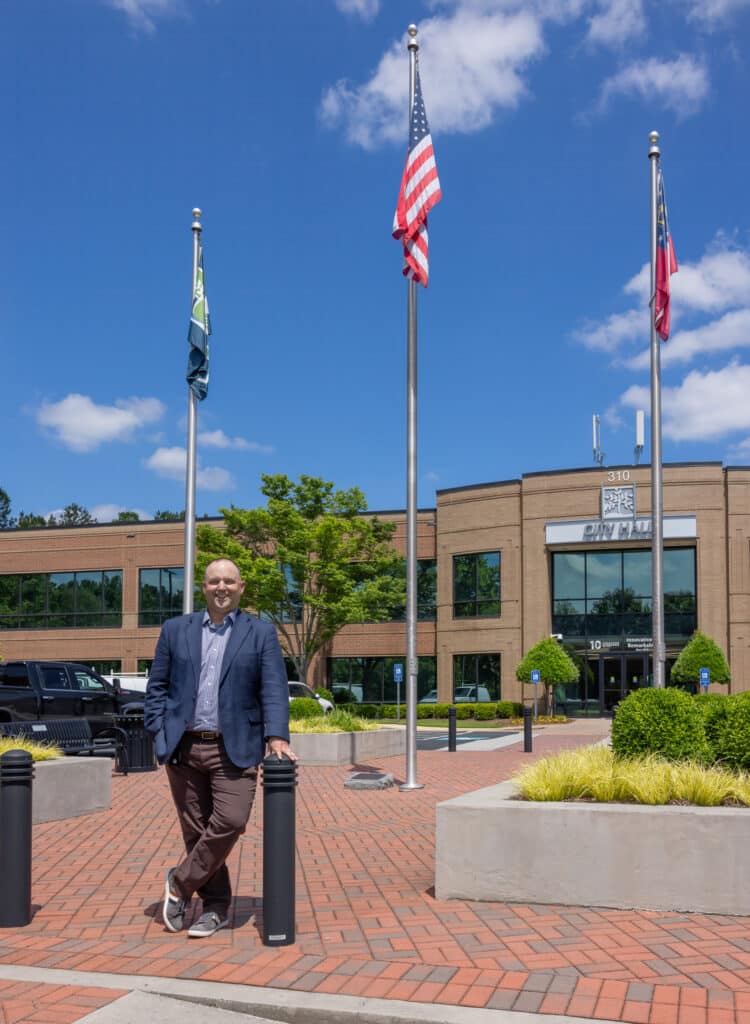
Local government possibilities
“After a handful of years, I got lured away into the private sector,” he said.
Working on land use and government relations matters from the other side of the table, Adams represented developers and investors.
“Sometimes [investors would] come to me with a property that they bought, and they’d say, ‘Hey, we bought this on investment. We’d like to see how we can make the highest and best use of it. Help us create a vision,’” he said. “So, I helped put a team together to determine what we thought could go on the site based off of local government zoning.”
His job entailed working with architects and engineers to design the site and help the client take it to market. Ultimately, the contract purchaser would come in and seek needed entitlements.
“I would help with that,” Adams said. “Those were the fun ones because you got to start on the ground.”
Adams got to know many different local government jurisdictions and worked extensively around metro Atlanta on various matters. On a busy week, he may work with five different jurisdictions across the state.
As a family man with a wife and two sons, he began looking for something that would keep him closer to home.
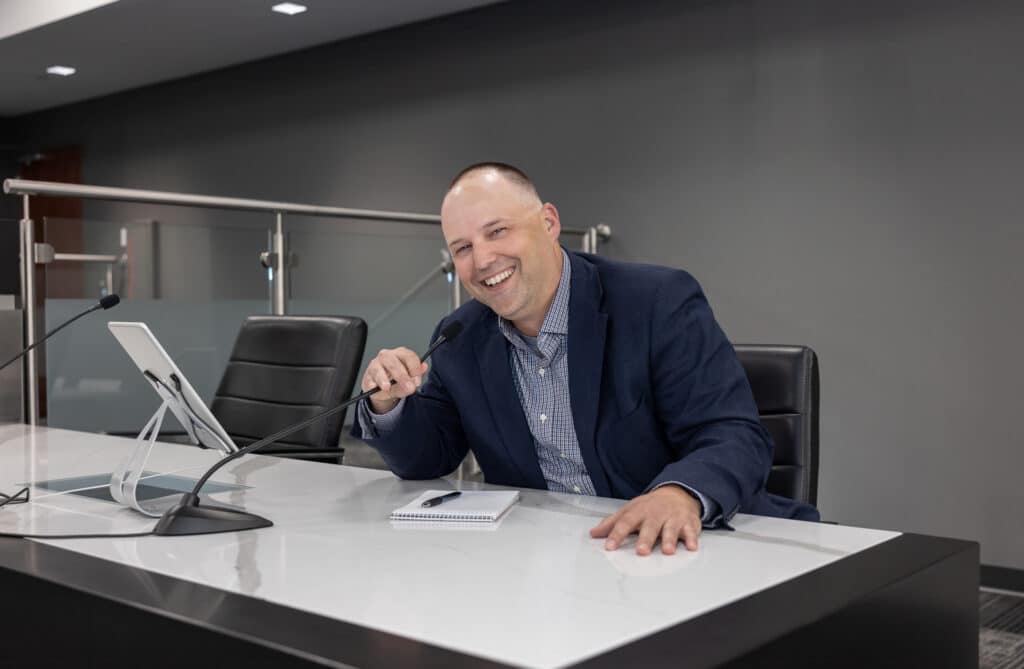
A perfect fit
City Manager Brian Johnson says it was serendipitous that Adams was looking for a position at a time when the city needed someone like him.
“It’s actually a hard position to fill, and I just happened to catch him,” said Johnson. “We were familiar with each other because he’s represented a number of clients coming before the city.”
Johnson said that Adams was legal counsel for some of the most significant developments in the last few years: North American Properties purchasing and revitalizing The Forum, housing development Waterside, and Intuitive Surgical moving its headquarters from the West Coast.
“He was on the other side of the table as we worked together to make these projects ultimately better for the city and better than they were upon their initial submittal,” Johnson said.
“And I knew then that he was a really knowledgeable guy that really knows how to deal with people. He’s a problem solver. He’s always looking for ways to figure out how to resolve conflict and navigate minefields as it relates to land use and all the laws and zoning that apply to it,” he added.
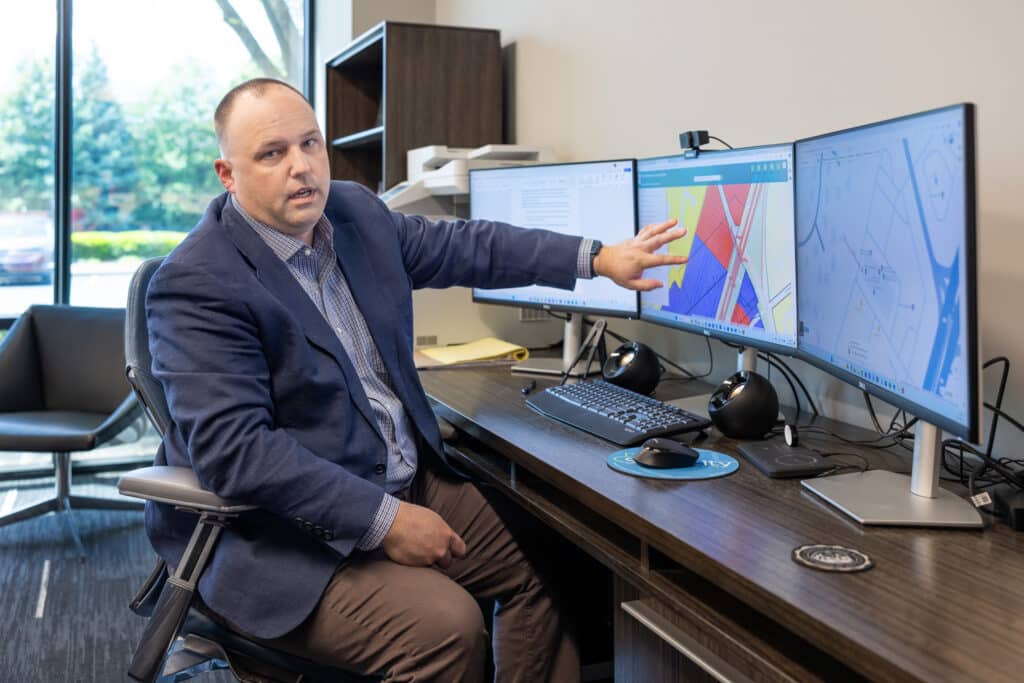
Changes to the job
Although Wheeler is no longer a staffer, she’s still doing work for the city.
With Adams’ legal background, the events planning team will be transitioning out from under community development.
“By taking that off my plate, it’ll allow me to do more with the legal side of things that the position didn’t do previously,” he said.
There will also be a shift with code enforcement duties moving under Chief Marshal Edward Restrepo.
“I moved code enforcement underneath the city marshal’s office because code enforcement and law enforcement are almost like fraternal twins — they both do very similar things,” said Johnson. “Each of them is enforcing a different level of law. Code enforcement is municipal code, and law enforcement is state code, but they work hand in hand.”
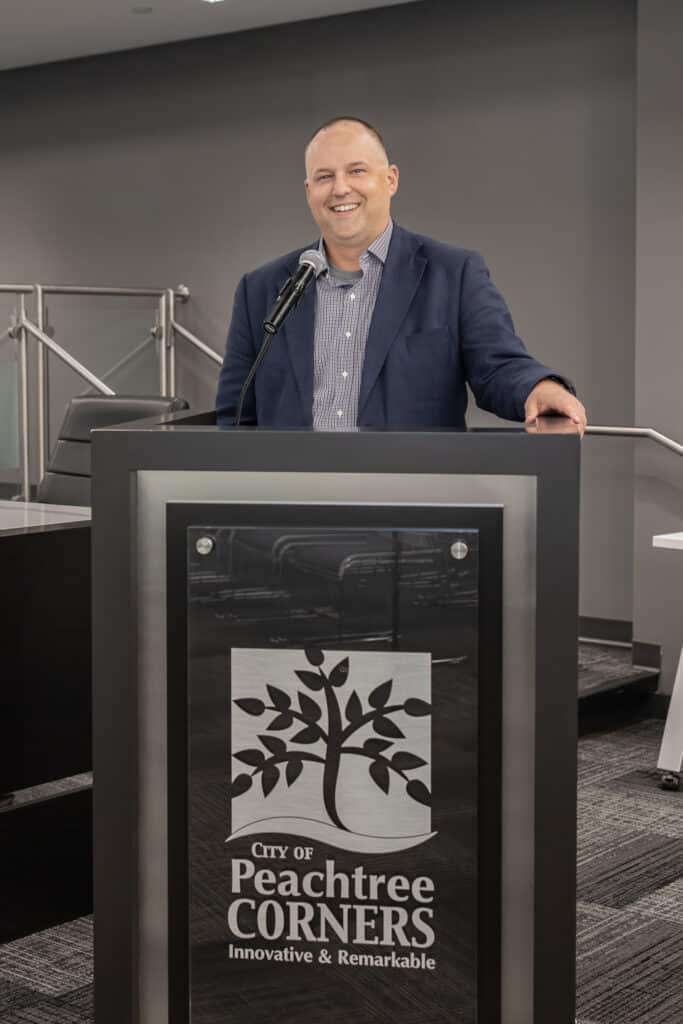
The events planning through the end of the year has already been moved from the community development director’s department. As a consultant, Wheeler will work with other contractors to manage the happenings at the Town Center. Director of Communications Louis Svehla has already moved into managing premier events, Johnson said adding that the city may use more consultants in the future under Svehla’s management.
“He has really shown his ability to manage special events very adeptly. He really showed me that skill set when we had last year’s Criterium bike race,” said Johnson. “I decided to take advantage of some opportunities, including our partnership with Audi, which we were going to announce to the whole vulnerable road user thing.”
With only three months to prepare, Svehla pulled off the event without a hitch.
“He did an outstanding job and so he is capable of taking the management of our community events, our concerts and stuff,” said Johnson.
Johnson said the city is still utilizing consultants for some aspects of special events, but if consultant fees become more expensive than hiring someone full-time to assist Svehla, he’ll make that call.
“All those moves have happened, and I’ll sum it up by just saying that I’m just playing to the strengths of these people and utilizing a great team that I have, and it’s working out really well,” Johnson said.
Related
Read the Digital Edition
Subscribe
Keep Up With Peachtree Corners News
Join our mailing list to receive the latest news and updates from our team.
You have Successfully Subscribed!

What’s going on at Jones Bridge Park and the Challenges of Urban Development

Taste of Peachtree Corners: PCBA Showcases Local Restaurants

The Forum Gives Sneak Peek of New Eateries and Community Spaces

Southwest Gwinnett Mayors Share Visions for the Future

8 Events Happening In and Around Peachtree Corners This August

Peachtree Corners Shines Bright with Light Up the Corners Glow Race this August

Peachtree Corners Shines Bright with Light Up the Corners Glow Race this August

The Forum Gives Sneak Peek of New Eateries and Community Spaces

8 Events Happening In and Around Peachtree Corners This August

Southwest Gwinnett Mayors Share Visions for the Future

Taste of Peachtree Corners: PCBA Showcases Local Restaurants

What’s going on at Jones Bridge Park and the Challenges of Urban Development

Local Resident Opens AtWork Location in Peachtree Corners

CHRIS 180 Expands its Services into Gwinnett County [Podcast]

Light up the Corners [Video]

Capitalist Sage: Business Leadership in Your Community [Podcast]

Cliff Bramble: A Culinary Adventure through Italy

Top 10 Brunch Places in Gwinnett County

A Hunger for Hospitality

THE CORNERS EPISODE 3 – BLAXICAN PART 1

Top 10 Indoor Things To Do This Winter

The ED Hour: What it takes to Remove Barriers from Education
Peachtree Corners Life
Topics and Categories
Trending
-
Business1 week ago
Taste of Peachtree Corners: PCBA Showcases Local Restaurants
-
Business2 days ago
The Forum Gives Sneak Peek of New Eateries and Community Spaces
-
City Government4 days ago
Southwest Gwinnett Mayors Share Visions for the Future
-
Around Atlanta4 days ago
8 Events Happening In and Around Peachtree Corners This August






